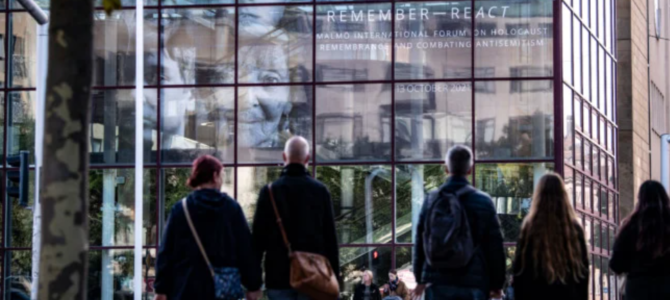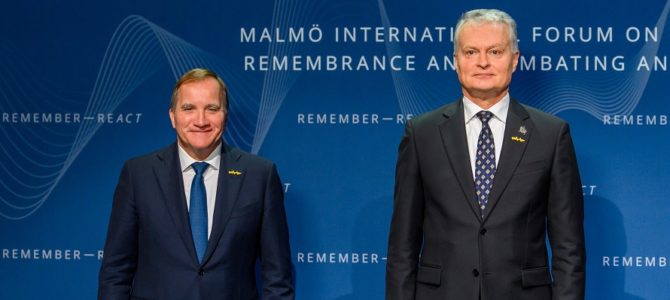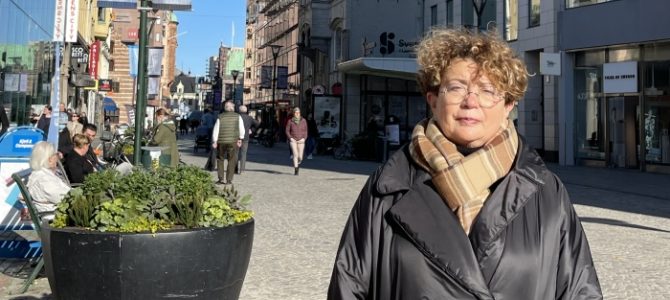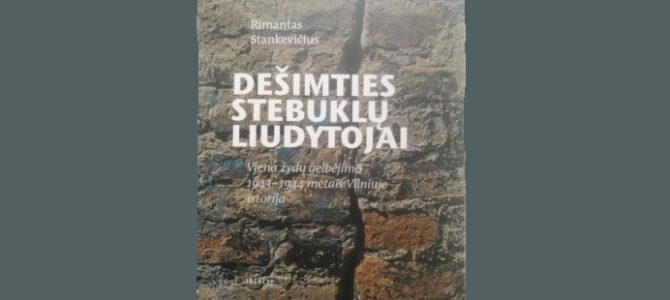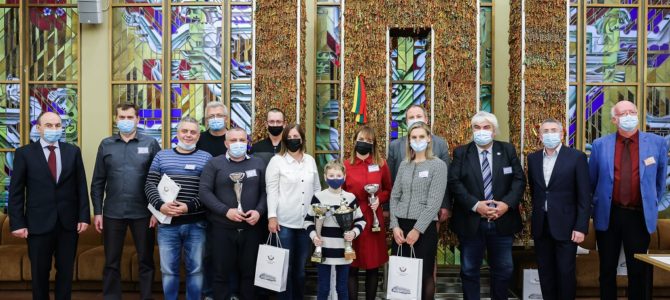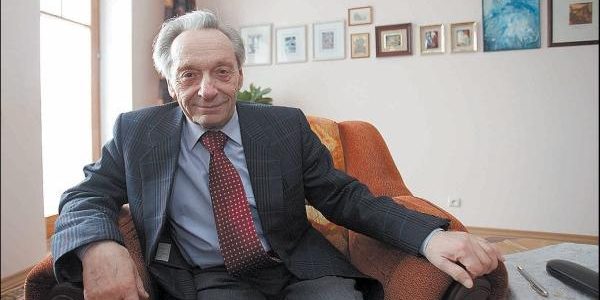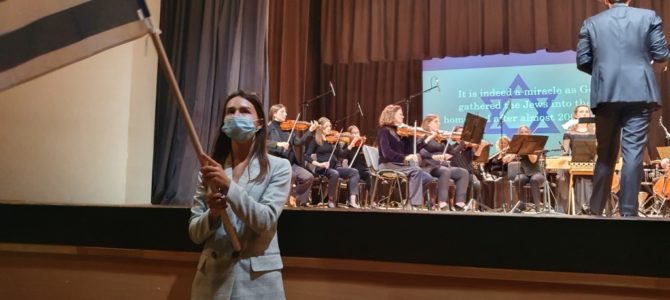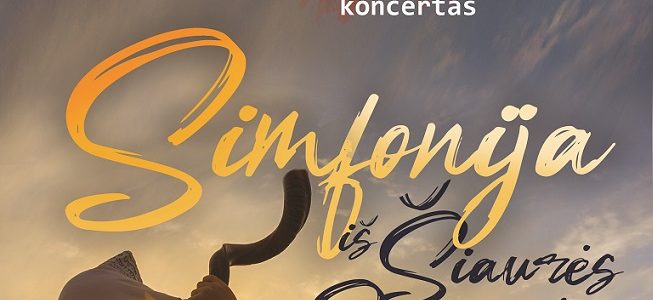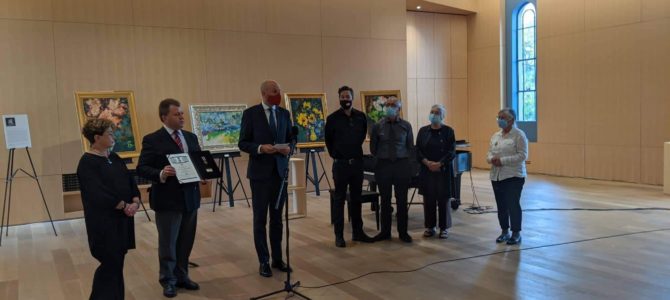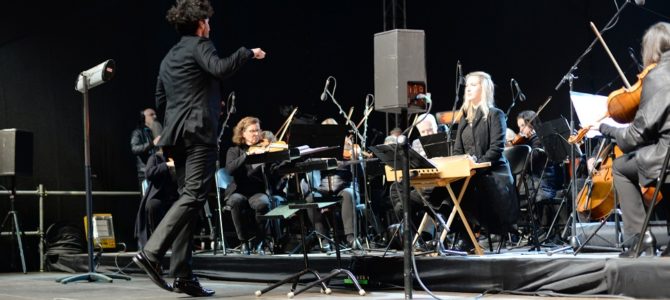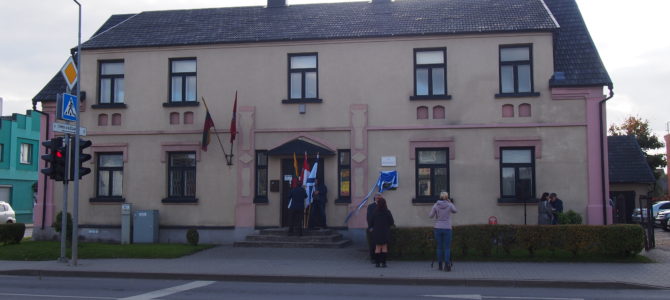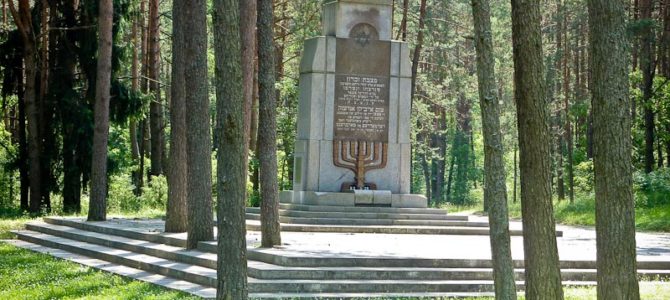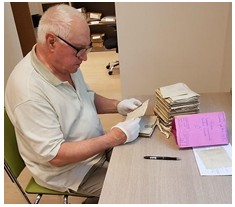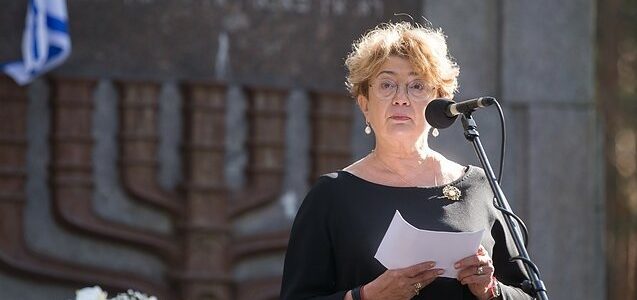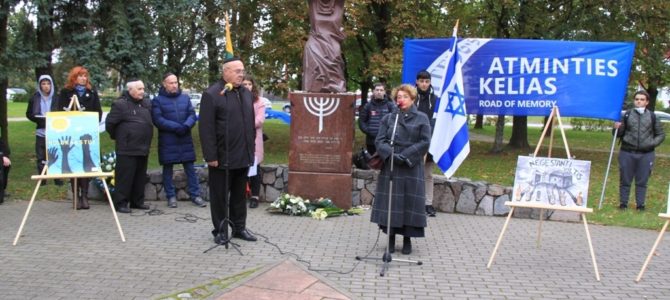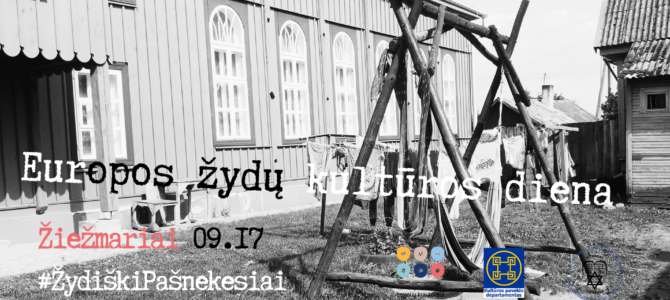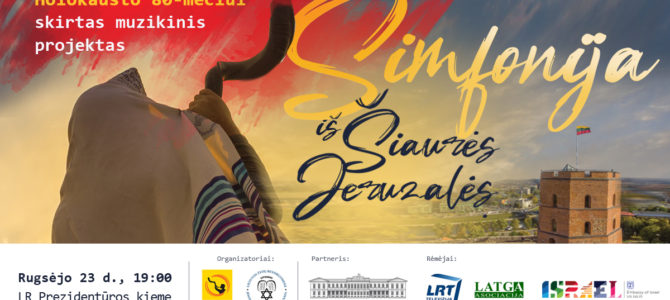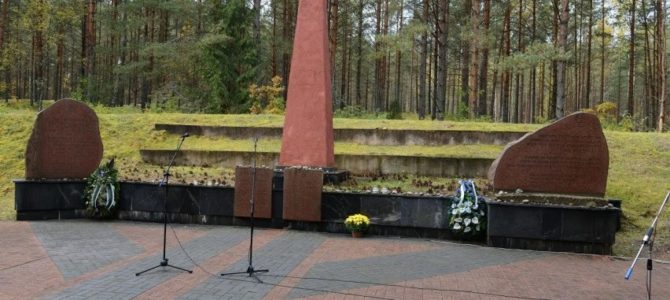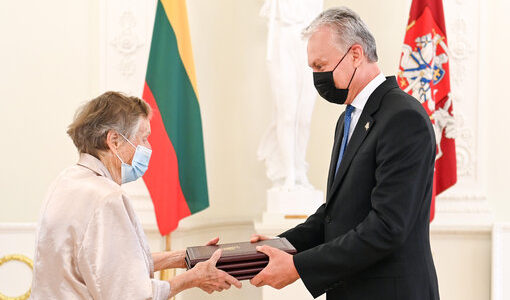Lithuanian Jewish Community chairwoman Faina Kukliansky is taking part in meetings in Malmö, Sweden, for commemorating the Holocaust and battling anti-Semitism. The forum is addressing issues of preservation of historical memory, Holocaust education and the crimes of anti-Semitism and other hate crimes.
“This forum draws attention to the sad truth that there remain very few people throughout the world who survived the Holocaust and are able to testify about it. Today we must find new ways to preserve and transmit memory, new methods of education. Another big challenge is that the history of the Holocaust is being distorted and used for disinformation and propaganda, and a rising tide of anti-Semitism, both in real life and especially on the internet. In order to fight this, we must rally the education system and museums, but also educate our governments and the public, and that’s what this forum is about,” Faina Kukliansky said.
The LJC chairwoman who was officially invited to the forum will meet with European Commission’s coordinator for fighting anti-Semitism Katharina von Schnuberin, World Jewish Congress executive vice-president Maram Stern and other officials responsible for preserving Holocaust memory and fighting anti-Semitism. Kukliansky said the international community is watching how Lithuania acts towards Holocaust victims with a special focus on historical memory and justice.
Following the forum in Malmö, chairwoman Kukliansky plans to return to Lithuania with Rabbi Andrew Baker, director of the international affairs department of the American Jewish Committee, who will discuss anti-Semitism, Holocaust commemoration and the future of the Jewish community with representatives of the Lithuanian government and public figures.
The forum taking place in Malmö on October 13 and 14 is graced by the presence of the King of Sweden and his consort, King Carl XVI Gustaf and HM Queen Silvia, and more than 80 heads of state, journalists and influencers. It is being held at the initiative of the Kingdom of Sweden and the motto for the forum is “Remember, React.” It is being held on the 75th anniversary of the liberation of the Auschwitz-Birkenau concentration camp and on the 20th anniversary of the founding of the International Holocaust Remembrance Alliance, with the date moved from 2020 to 2021 because of the public health panic.


